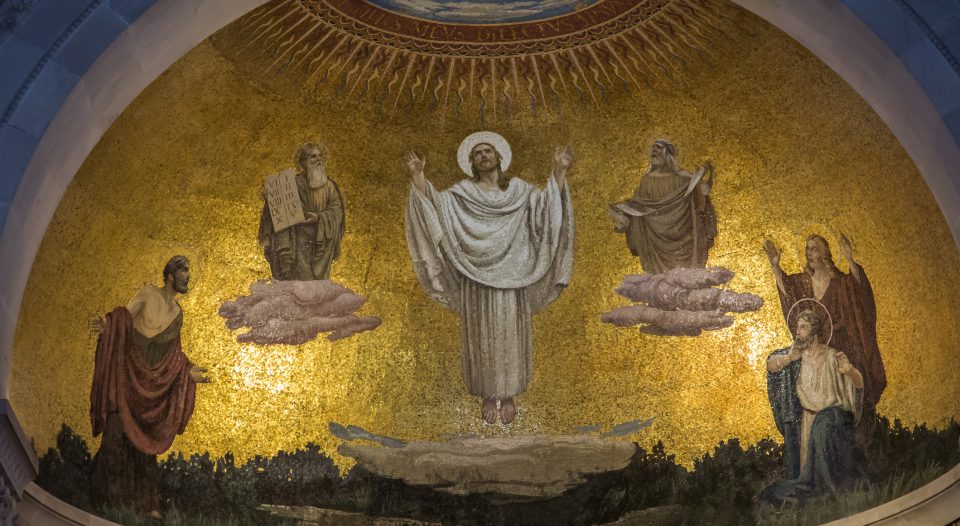Lectionary for Feb. 11, 2024
Transfiguration of Our Lord
Last Sunday after Epiphany
2 Kings 2:1-12; Psalm 50:1-6;
2 Corinthians 4:3-6; Mark 9:2-9
Almost a decade ago I nervously walked into my doctoral adviser’s office to tell him I wasn’t sure I wanted to go into academia. He was initially relieved that I wasn’t dropping out of the program entirely. But then he reminded me that professors devote significant energy to doctoral students, hoping they will go out into academia and bring honor to their advisers and alma maters. In the ensuing years I’ve tried to walk a line with one foot in academia and one foot in the church. While I’ve done my best in my career, I’m afraid that I am a somewhat-disappointing disciple, at least for my doktorvater (adviser). This week’s lectionary readings are about confused disciples who go on to fully embody their masters’ teachings.
Elijah was a cranky prophet, to be sure, who had tried to resign his call many times. God finally sent a whirlwind to begin Elijah’s journey directly into the heavens without having to experience death first.
Accompanied by Elisha, Elijah began his journey across the Jordan. Along the way, he repeatedly entreated his disciple to leave him alone. Companies of wilderness prophets also warned Elisha that God would take away Elijah from his head that day. To me, that specificity of the removal of Elijah from Elisha’s head sounds vaguely menacing. Nevertheless, Elisha ignored the prophets’ words and Elijah’s pleas and continued on the journey, going so far as to swear on the Lord’s life that he wouldn’t leave.
As the two drew close to the Jordan, Elijah rolled up his cloak and struck the river. The Jordan separated, and Elijah performed a reverse pilgrimage in the same vicinity where generations earlier the Israelites were said to have crossed the river on dry ground (Joshua 3-5). Elijah and Elisha then crossed over to the region where Moses’ life came to an end. After Elijah ascended into the heavens in a whirlwind, Elisha returned to the Jordan River and used Elijah’s cloak to strike the water and reenter the promised land on dry ground. Elisha literally and figuratively took on the mantel of his master to do what he had seen Elijah do.
Jesus wasn’t transfigured in order to become an object of worship. Instead, Jesus was transfigured and God spoke to give divine support to his teaching: “Listen to him!”
Hundreds of years later, Jesus’ disciples acted just as Elisha had. Jesus stood on a high mountain in his brilliantly white robe, listening to Moses and Elijah. Upon seeing Jesus transfigured and the prophets Moses and Elijah, Peter suggested that he could set up holy shrines for the three men. This suggestion didn’t seem to elicit any response from Jesus. Instead, a cloud suddenly appeared and ordered Peter, James and John to listen to God’s beloved son.
Frequently interpreters will criticize Peter for missing the point of the transfiguration. Jesus wasn’t transfigured in order to become an object of worship. Instead, Jesus was transfigured and God spoke to give divine support to his teaching: “Listen to him!” The revelation worked! Peter not only listened to Jesus but lived and died like Jesus.
In the book of the Revelation to John at Patmos, those who were murdered for their faithfulness to the way of Christ were given white robes as they awaited judgment and restoration of all things (Revelation 3:5; 6:10-11; 7:9-19; 22:14). Peter was executed by Romans, as were so many of the disciples, emulating their master’s death. According to John’s vision, Peter put on a glimmering white robe, just like Jesus wore on the mountain of transformation.
The point of these stories about Elijah, Jesus and their disciples is that we are encouraged to listen to the words of our Lord and become like Jesus. We are to take up the mantel of Jesus and do the work set out for us as members of the body of Christ. We are called to love like Jesus loved and to confront complacency like he did. We are called to wage peace like Jesus did (those cords in the temple that someone is surely thinking of were for sheep and cattle, not humans—John 2:15). Let us obey God and listen to the teaching of Jesus.






